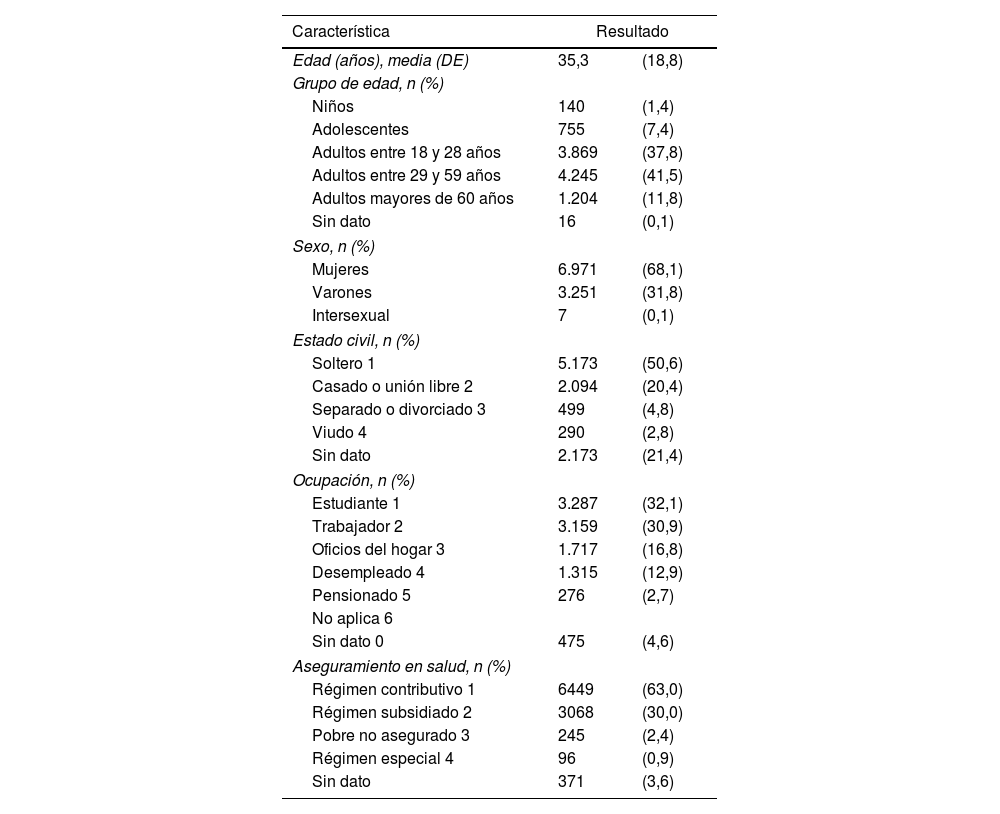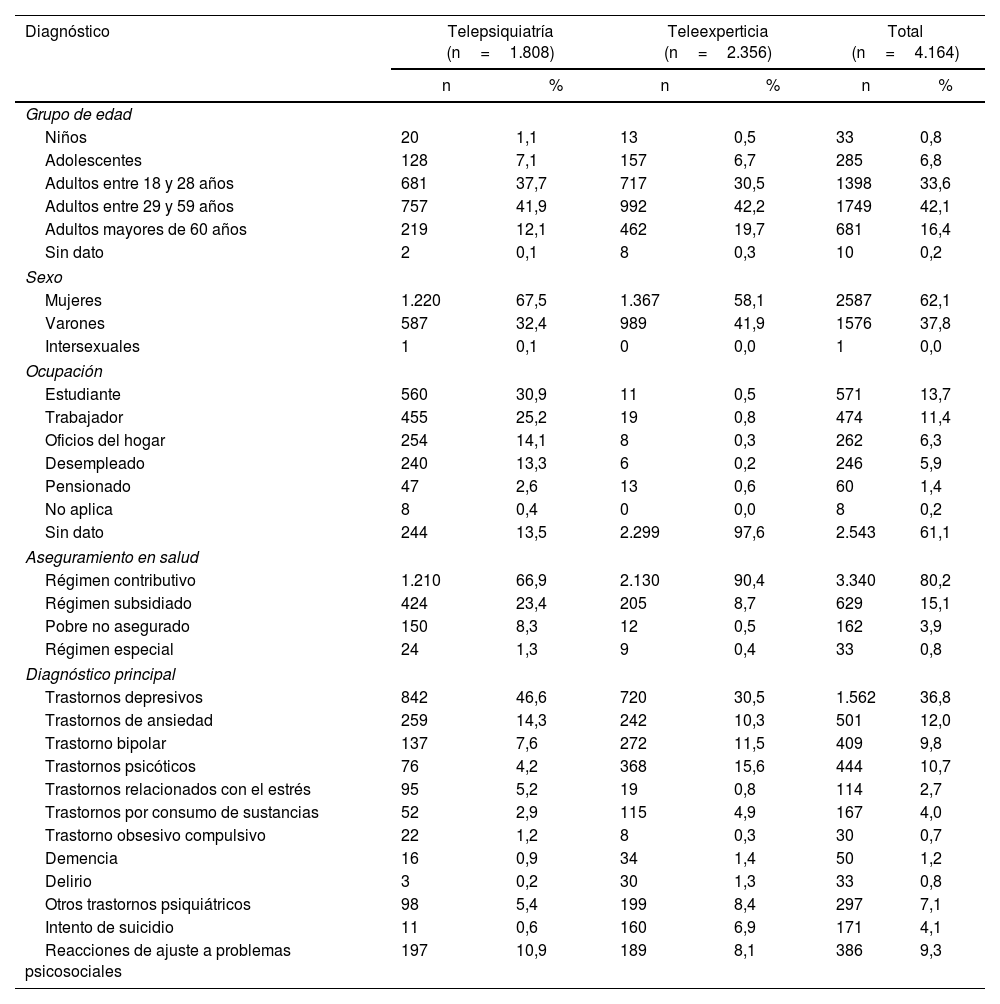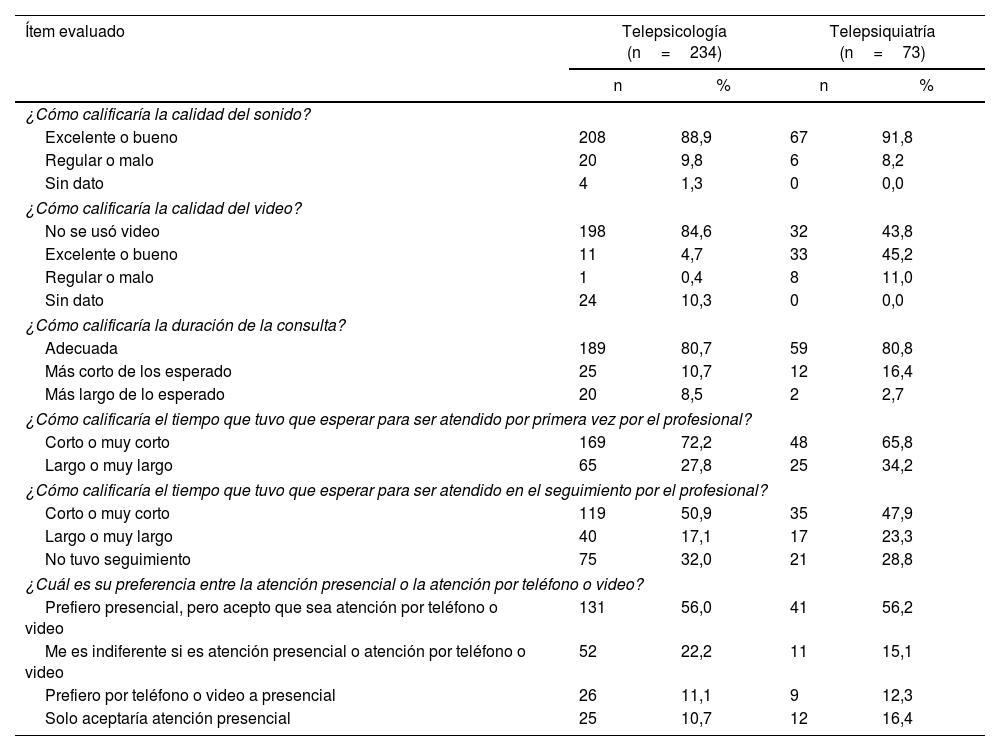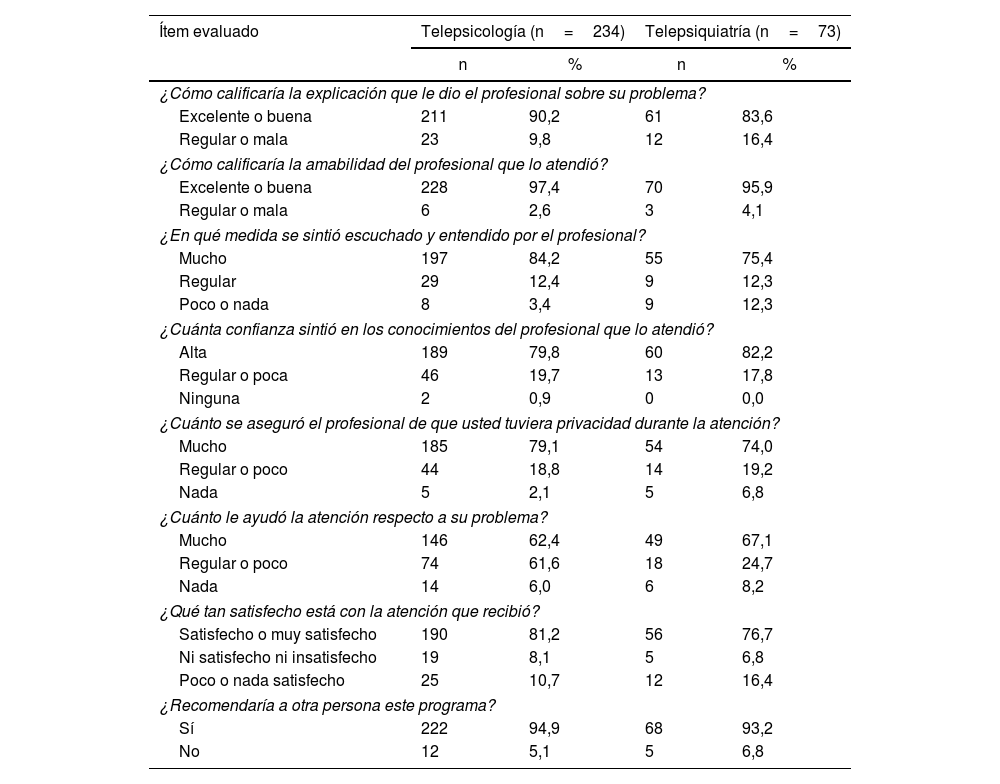En el LivingLab de la Facultad de Medicina de la Universidad de Antioquia se diseñó un programa de telesalud mental.
ObjetivoDescribir el desarrollo y el funcionamiento del programa y evaluar la satisfacción de los pacientes atendidos en 2020 y 2021 durante la pandemia de COVID-19.
MétodosEstudio descriptivo que detalla el desarrollo del programa. Se extrajeron los datos de las historias clínicas para describir a los pacientes atendidos. Se aplicó una escala de satisfacción a una muestra aleatoria y se resumieron los datos con estadística descriptiva.
ResultadosDurante marzo de 2020 y agosto de 2021, se atendió a 10.229 pacientes con 20.276 atenciones por telepsicología y 4.164 por psiquiatría, 1.808 en la modalidad de telepsiquiatría y 2.356 en la de teleexperticia, con un total de 6.312 atenciones. Los diagnósticos más frecuentes fueron trastornos depresivos (36,8%), ansiosos (12,0%) y psicóticos (10,8%). Los encuestados se mostraron satisfechos, al punto de que más del 93% recomendaría el programa a otra persona.
ConclusionesEl programa de telesalud mental del LivingLab permitió la atención de pacientes de Antioquia con problemas y trastornos mentales durante los primeros 2 años de la pandemia de COVID-19 y los beneficiarios mostraron un alto grado de satisfacción, por lo que podría adoptarse para la atención en salud mental.
A telehealth mental health programme was designed at the LivingLab of the Faculty of Medicine of the Universidad de Antioquia [University of Antioquia].
ObjectivesTo describe the development and operation of the programme and evaluate the satisfaction of the patients treated during the COVID-19 pandemic in 2020 and 2021.
MethodsDescriptive study that details the development of the programme. Data were extracted from medical records to describe the patients who were treated. A satisfaction scale was applied to a random sample and the data were summarised with descriptive statistics.
ResultsIn March 2020 and August 2021, 10,229 patients were treated, with 20,276 treated by telepsychology and 4,164 by psychiatry, 1,808 by telepsychiatry and 2,356 by tele-expertise, with a total of 6,312 visits. The most frequent diagnoses were depressive (36.8%), anxiety (12.0%), and psychotic (10.7%) disorders. Respondents were satisfied to the point that more than 93% would recommend it to another person.
ConclusionsThe LivingLab telehealth mental health programme allowed for the care of patients with mental health problems and disorders in Antioquia during the first two years of the COVID-19 pandemic, and there was a high degree of satisfaction among the beneficiaries. Therefore it could be adopted in mental health care.
Artículo
Comprando el artículo el PDF del mismo podrá ser descargado
Precio 19,34 €
Comprar ahora










